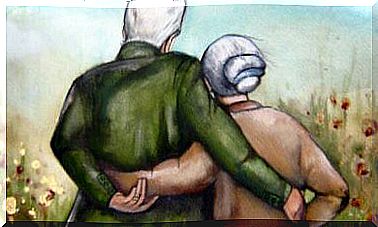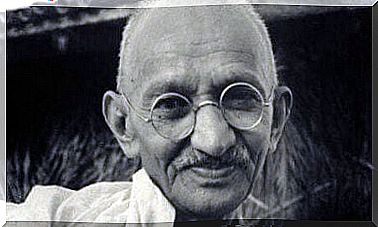Tell Me How You Are Showing Authority, I Will Tell You How Your Children Will Grow Up

The education of children has become a very complicated subject, as more and more theories claim to have universal solutions. However, we do not come into the world with someone who explains to us how to be good parents. There are of course certain general criteria that we can identify without being mistaken. Foremost among them is the way in which parents exercise authority over their children. Even if this concept has evolved enormously in recent years, it has not disappeared for all that.
Previously, parental authority was much more present than today. In most cases, children obeyed their parents just because they had to. Point. It was an absolute authoritarianism, where the child obeyed the rules for fear of reprisals. Thus, to gain respect, parents used a range of sanctions to punish the failings of their offspring, ranging from threats to corporal punishment. Physical violence was an integral part of this form of education.
Nowadays, the situation is gradually being reversed. Many voices are raised to criticize the parents’ lack of authority. They would be less and less respected by their children and they would be reluctant to impose their rules. We have come to such a point that we are talking about abused parents or bully children.
Authority and the education of children
Rules are important for acquiring responsibilities and for limiting arbitrariness. Boundaries bring stability to our social relationships. It is the parents, or more generally the adults, who are in charge of the children who must ensure that they are respected. Most of them don’t, out of sheer negligence or conviction. Imposing limits requires a significant effort, which puts off some.

Children are often temperamental. This is why it is important to make them understand that they cannot do everything they want, that things are obtained through effort and work. That sometimes, even if we put our heart into it, the things we want escape us. The younger the child, the more rules we have to impose. He is a child who is supervised by an adult, and he must accept it. We must not impose on him without warning, but explain to him the merits of this distribution of roles.
As the child grows, it is possible to enter into a constructive dialogue with him. This is the perfect time to analyze the rules to which he must comply, to make him understand that some of them are not negotiable. The family must move forward at the pace dictated by the parents, who take full responsibility for it. Quite simply because they are adults. Because if the child wants to change things, he must behave like an adult and become, first of all, responsible for himself.
Establishing and maintaining any form of authority is a source of conflict. Children are adults in training, who have not integrated all the dimensions of existence. They only seek to do what gives them satisfaction. The limits imposed by their parents cause them frustration and sometimes push them to get into black anger. Some parents tire quickly in the face of these complicated battles, they quickly admit defeat. But that’s pretty much the opposite of what they should be doing. Trying to regain one’s authority after losing it is an extremely complicated task.
Excessive laxity and its harmful effects
The absence of a coherent model of authority can negatively impact the life of any human being. As a rule, children raised in this setting grow up to be anxious and insecure adults. When parents do not set limits, or do not respect them themselves, the child feels like he is walking on unstable ground. He has no reference to interpret the world around him, even though his intention would be to question it.

Even if some parents do it with the best of intentions, never fall into the trap of being overly lax, which can do your children the greatest harm. This educational method is often perceived as making it possible to avoid the transmission of anxieties from parents to children, not to stress the children by making them responsible too early. But it is based on a misconception of freedom. From this lack of authority can be born stubborn, indolent and prejudiced children.
Most serious in all of this is what happens to them as adults. They will absolutely not have the right tools to face a reality in which limit and impossibility are key words. They will not have the strength that life’s greatest difficulties require. They will live in frustration because nothing will go exactly the way they want it to be and they will not know how to deal with this mismatch between their will and the world around them.
Affection and complicity, two essential conditions for authority
Trying to exercise authority without overpowering it with affection and complicity would be more a tyrannical order than an educational inclination. A father or mother who would only enter their children’s lives when it is time to give orders or demand things would be wrong. This behavior stems from a desire for power, of submission on the part of the other. It is not at any time the right authority necessary for any good education.

It is very important that parents devote time to their children. To talk to them, to play with them, to get to know them and to reveal their personality. When a child feels his parents love him, he is much more willing to accept their authority. He will quickly understand that this is in no way the imposition of arbitrary power, but more of a course of action to be followed in order to succeed in life.
Children who grow up without parents or authority do not grow into stable adults. They have the annoying tendency to think that they are always right and try to use others at their convenience. It is difficult for them to take on important responsibilities and deal with complex issues. Their self-confidence did not have time to flourish. In the most serious cases, they can cross the yellow line imposed by life in society and sink into criminal behavior.
Images by Rafael Duarte








